Camponotus (Myrmosericus) eugeniae Forel
  Type location South
Africa (Camponotus micans Nyl. r. Eugeniae n. stirps
Forel,
1879a: 78, worker; Forel, 1886f: 174, queen; Arnold, 1924: 687, male) -
see below Type location South
Africa (Camponotus micans Nyl. r. Eugeniae n. stirps
Forel,
1879a: 78, worker; Forel, 1886f: 174, queen; Arnold, 1924: 687, male) -
see below
all forms known (see
Bolton, 1995)  . .
Note:
subspecies amplior (Camponotus
(Myrmosericus) Eugeniae For. r. amplior n. stirps, Forel, 1913b:
341,
worker) from Zaïre,
Sankisia, also from Old Kasongo, by J. Bequaert - minor see http://www.antweb.org/specimenImages.do?code=casent0910318
- has pale erect hairs and so, clearly is not a form of eugeniae.
I show it below for comparison.
|
Forel (1879a) described the species as follows
(comparisons
with Camp. micans, type location Algeria) -
TL 8-11 mm; longer; thorax especially major, relatively long; sides of
alitrunk slightly rounded. Mandibles with six teeth; clypeus flat,
carinate, with a slightly shorter lobe, weakly scalloped in centre of
anterior border in major. Petiole scale slim, with convex anterior face
and slightly concave posterior face; wider at the summit, with an
almost straight border.
Sculpturation similar but a more gross, deeper and more irregular
punctate rugo-reticulum. Pilosity on body black (yellowish on micans)
pubescence less abundant, shorter duller of a greyish white (brilliant
yellowish-white in micans). Colour ash black (silky in micans),
matt except for a very narrow posterior yellowish border to gaster
segments; and anterior of mandibles and extremity of tarsi which are
dark reddish black. Legs longer; with flattened tibiae, with decumbent
short black hairs.
Possibly similar also to Camponotus
cinctellus but (at that time) that was inadequately known.
From South Africa, Mission de Valdézia, in Transvaal; and from Lesotho.
Dedicated to Madame Eugénie Berthoud who collected it with her husband.
|
Forel's (1879a) description is at  . Forel's (1886f) description of the worker
& queen is at . Forel's (1886f) description of the worker
& queen is at  . Forel's (1913b) description of amplior
is at . Forel's (1913b) description of amplior
is at  . Arnold (1924: 687)
provided a translation of Forel's (1879a) description, plus
descriptions of the male and queen; this is at . Arnold (1924: 687)
provided a translation of Forel's (1879a) description, plus
descriptions of the male and queen; this is at  . .
|
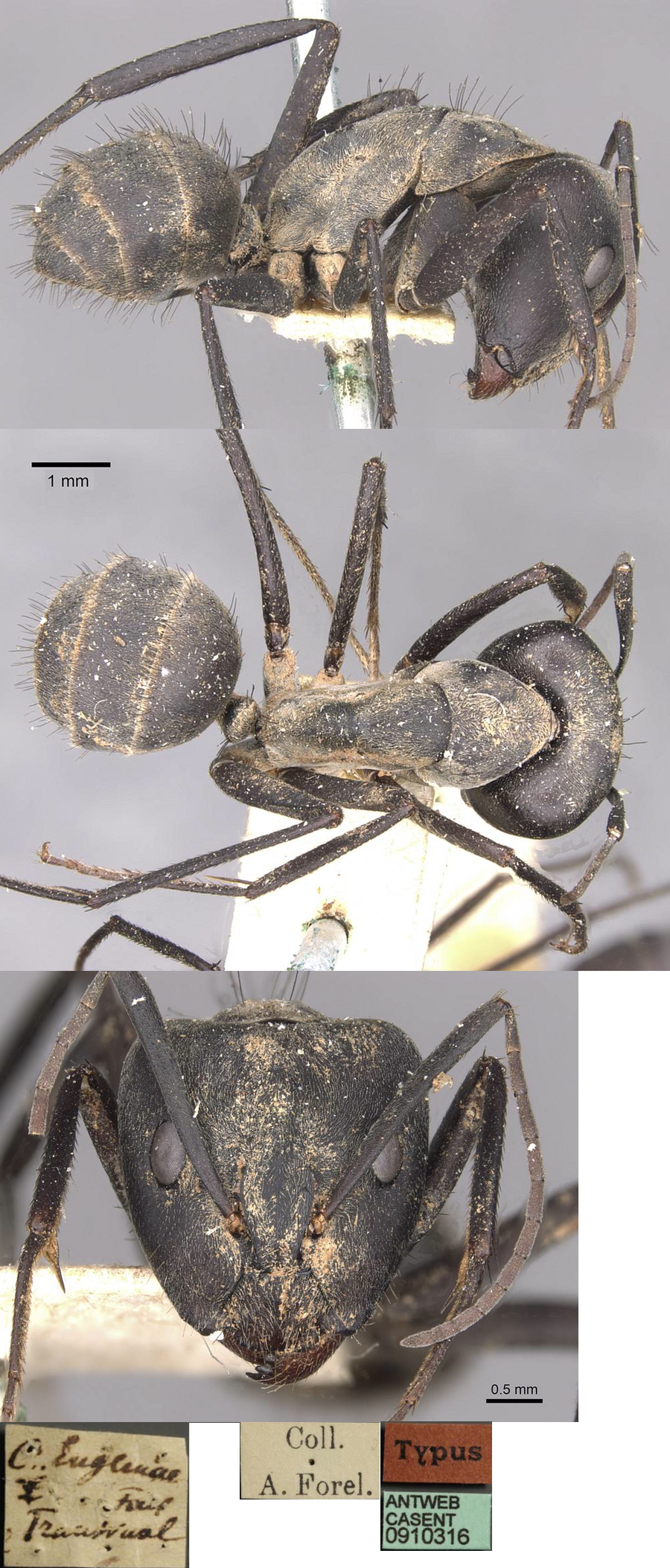 The
photomontage of the type major worker is collated from http://www.antweb.org/specimen.do?name=casent0906958. The
photomontage of the type major worker is collated from http://www.antweb.org/specimen.do?name=casent0906958.
|
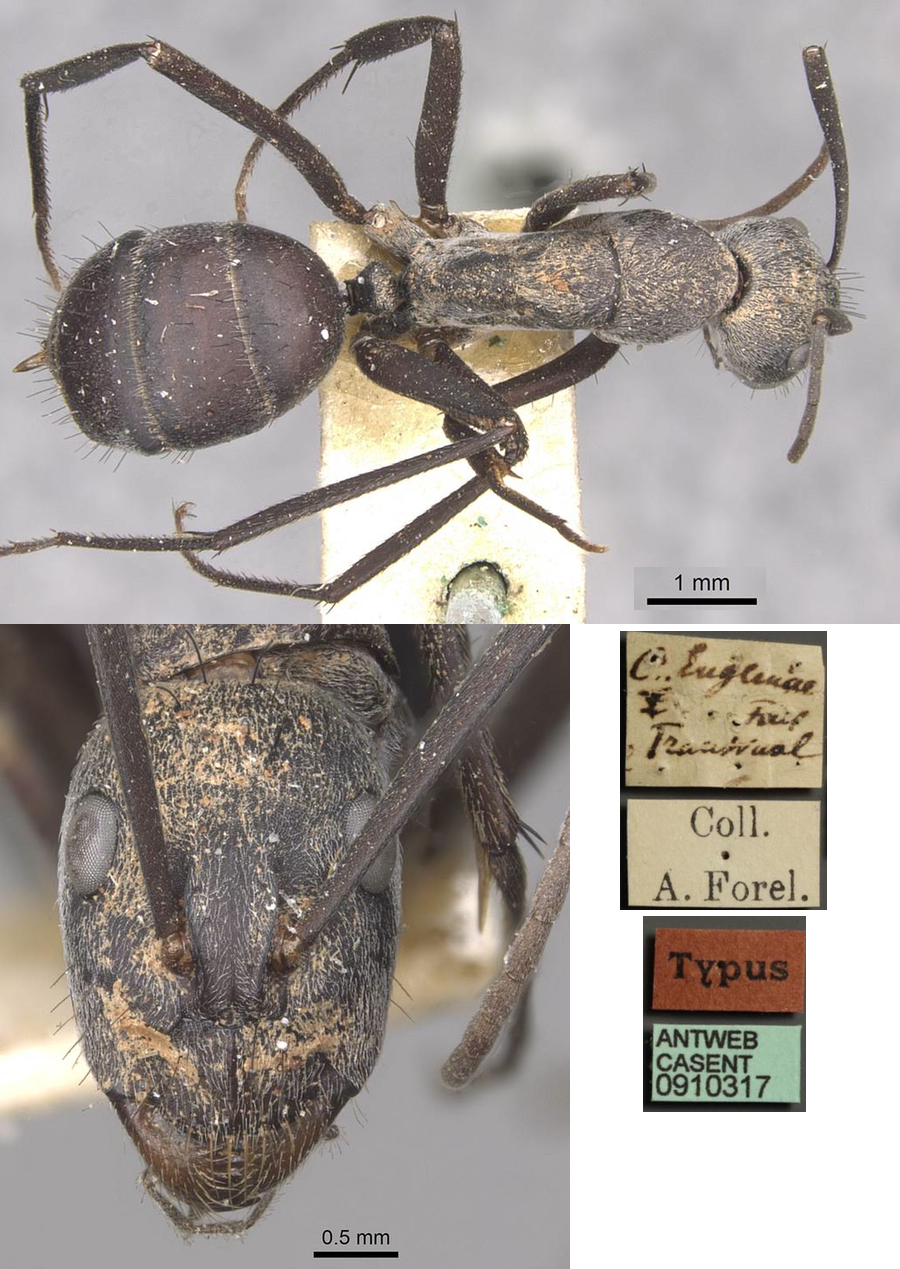 The
photomontage of the type minor worker is collated from http://www.antweb.org/specimen.do?name=0906959. The
photomontage of the type minor worker is collated from http://www.antweb.org/specimen.do?name=0906959.
|
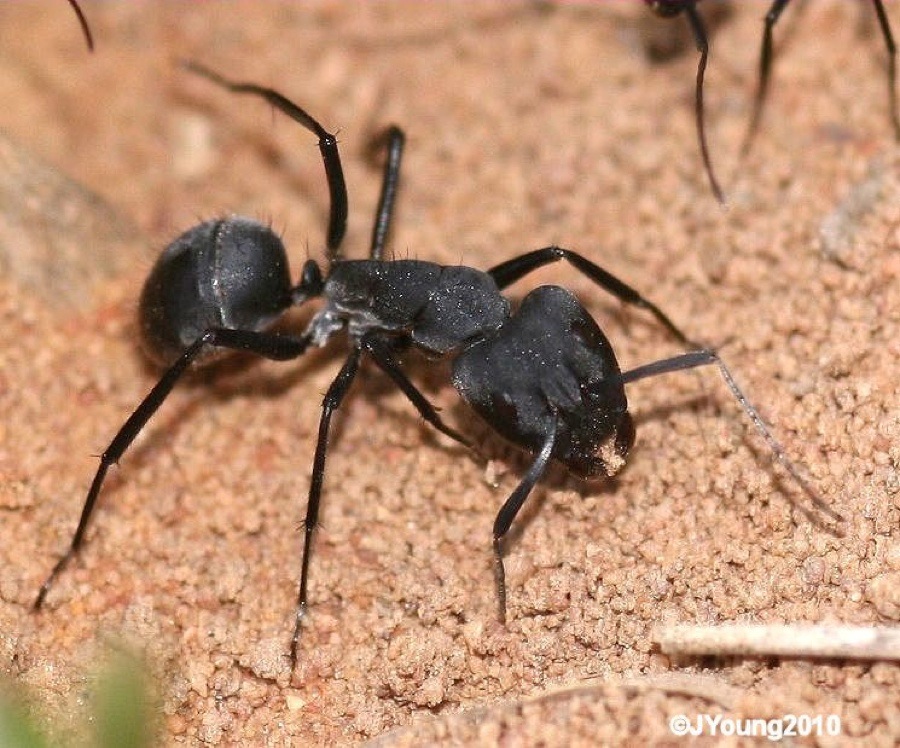 Photograph
of a major taken in the field by Joan Young, at Warmbaths (recent name
changed to Bela-Bela), a small town about 100km (60 miles) to the north
of Pretoria. The province the town lies in is called Mpumalanga. Photograph
of a major taken in the field by Joan Young, at Warmbaths (recent name
changed to Bela-Bela), a small town about 100km (60 miles) to the north
of Pretoria. The province the town lies in is called Mpumalanga.
|
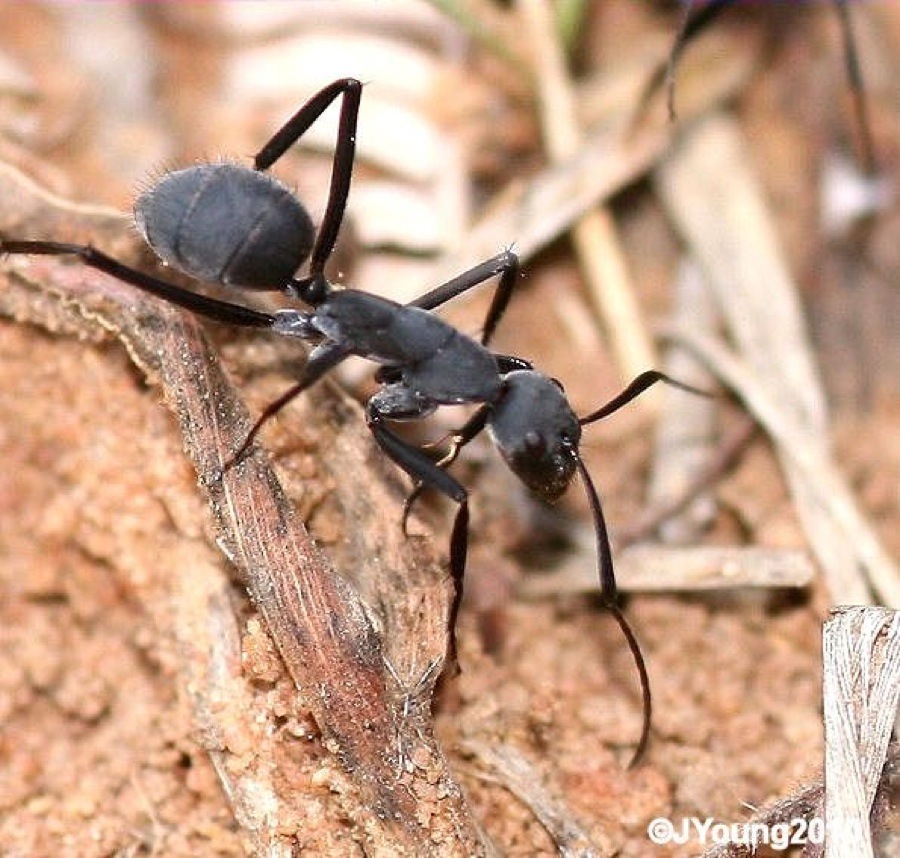 Photograph
of a minor, as above. Photograph
of a minor, as above.
|
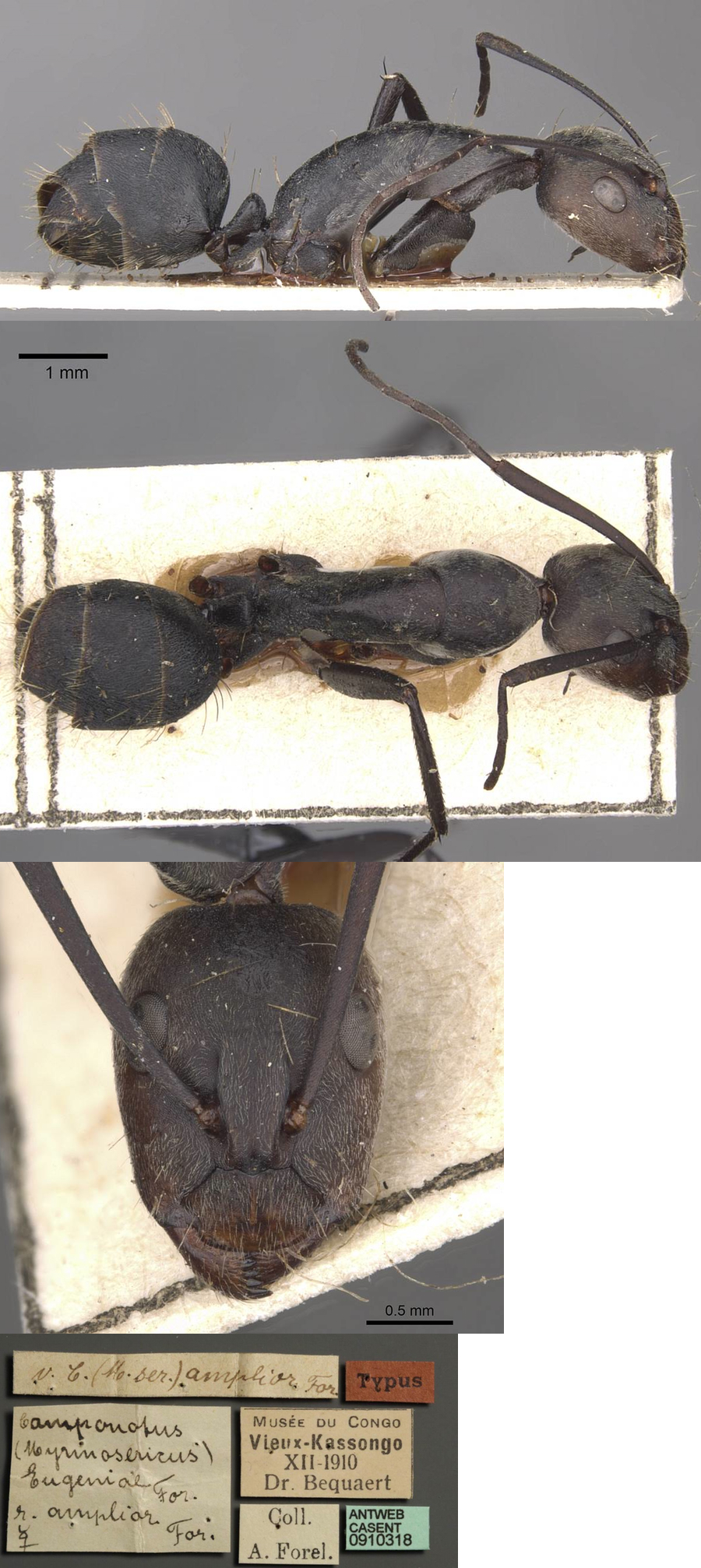 The
photomontage of the amplior type minor worker is collated from http://www.antweb.org/specimen.do?name=0906959. The
photomontage of the amplior type minor worker is collated from http://www.antweb.org/specimen.do?name=0906959.
|
|